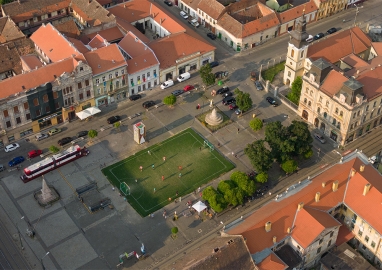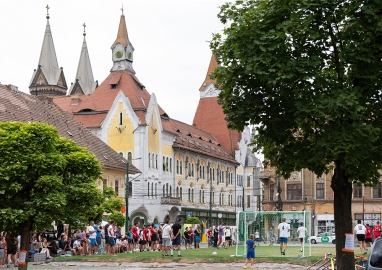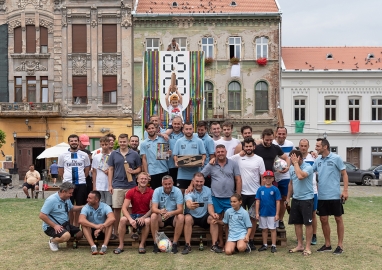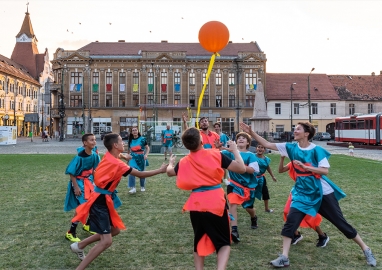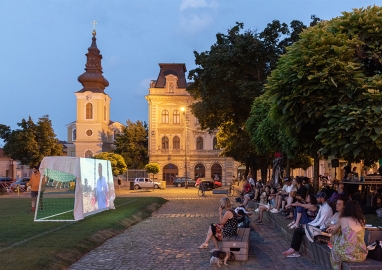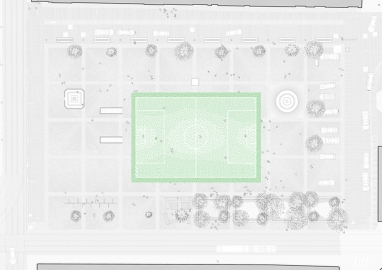F.I.D. Football as Infrastructure of Democracy
F.I.D. is a platform for socio-cultural interaction, a meeting space in the Fabric neighborhood. It is contained between the physical boundaries of a participatory architectural installation and the Fair Play rules of an amateur football tournament. It is a community activation project that aims to stimulate place identity and social cohesion.
Traian Square has the representativeness of a historic neighborhood center, but today it is in a decline phase and the feeling of belonging to the community is weakened by constant demographic successions and changes in the property regime (private to social housing). Although it is the subject of numerous proposals for urban regeneration, it is still an area associated with social alienation, with low levels of cohesion at the level of housing and, implicitly, a diminishing interest in the community.
In this context, football is used as a pretext to give voice to the people who live here and to make them visible, and the architectural installation becomes a stage where the residents of the neighborhood become protagonists and audience alike, a place where they can negotiate their energies and in which it creates new connections.
From an architectural perspective, the installation consists of a multi-functional scaffolding and a mini soccer field made of natural grass. Both constitute a symbolic agora for the neighborhood community where, through sports, events and other spontaneous activities, freedom of expression and community gestures are practiced.
Seen from a sociological perspective, the installation promotes a "horizontal sport" and concepts such as team and collective, that equalize social relations between different people and classes, both among players and spectators. Football is understood as a mirror of our society, which contains a certain language and a certain way of doing things, thus offering a functional model that connects us, in one way or another, with the paradoxes of the society in which we live. At the same time, the Fair Play code includes the same universal values that are mainly found in modern democracies. Through football, we want to cultivate respect, fraternity, pluralism, cultural and racial diversity, opposing racism, intolerance, and violence, both inside and outside the playing field.
The multifunctional scaffold, a minimal intervention, transforms from one edition to another, having a discreet presence and fulfilling the role of supporting a series of pretexts-signals: the flags of the teams or the colors of the tournament, the display of the scoreboard and the time, the ambient lighting at night, a new point of view, or other unintended functions such as a bike rack.
The installation, the championship, and the rest of the complementary events (exhibitions and video screening of thematic documentary films, artistic workshops, or the "third half" etc.) have a great impact on the life of the neighborhood.
Through the installation, the spatial and cultural disparities of the neighborhood are transformed, homogenizing it in a positive sense, giving it a timeless dimension, but above all playful and affective one. In the end, the atypical presence of natural grass in a mineral urban space makes a continuous appeal to a collective utopian imaginary in which an urban square becomes a green oasis. This different stance of the Traian Square allows the opening to multiple other scenarios of use, which were not available and taken into account until now.

